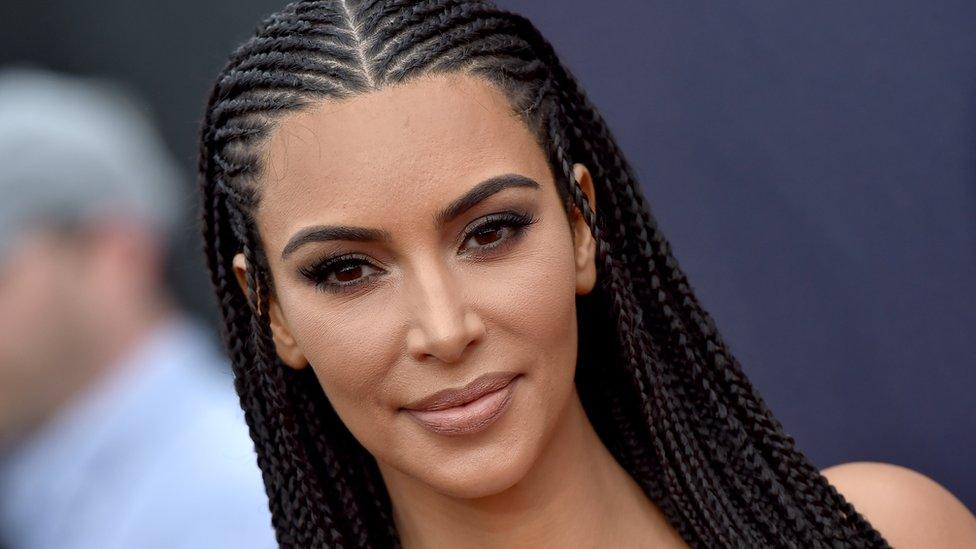YouTuber Nikita Dragun faces backlash over hairstyle
- Published
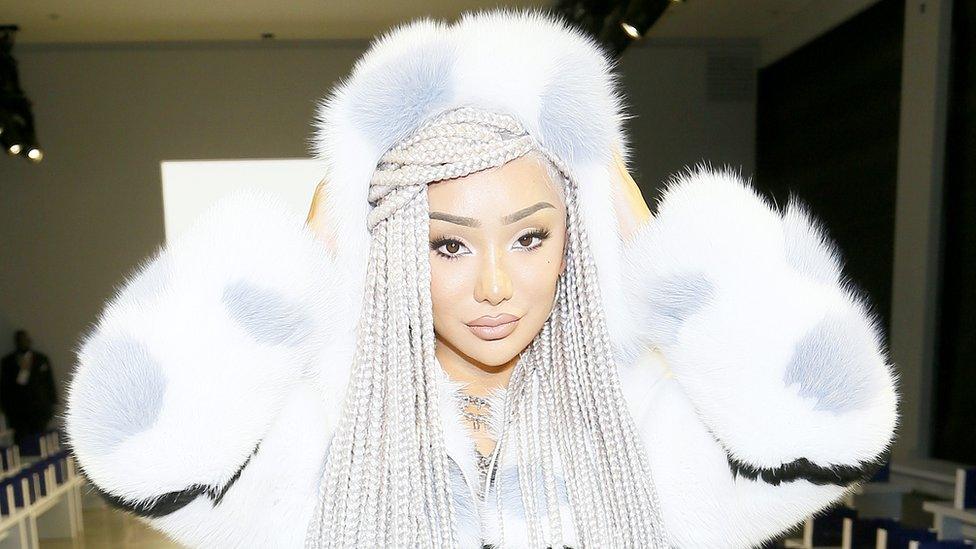
Nikita Dragun was photographed with the hairstyle at the Vivienne Hu show during New York Fashion Week
How many times in the past few years have we read about the online backlash faced by celebrities who wear their hair in a particular way?
Kim Kardashian, Kylie Jenner and Little Mix's Jesy Nelson have all been accused of cultural appropriation for wearing some form of braids, cornrows or dreadlocks.
Model Nikita Dragun is the latest person to come in for criticism, after she attended New York Fashion Week with braided hair.
The beauty YouTuber was accused of "cultural appropriation" by some and even of being "anti black" by others for wearing a hairstyle not associated with her own race.
Cultural appropriation is broadly defined as the adoption of elements of a minority culture - typically by members of a dominant culture.
Dragun has not apologised, but has since made an Instagram post to her five million followers stating that she wore the hair "to show my love and appreciation for all the gorgeous black women in my life".
Allow Instagram content?
This article contains content provided by Instagram. We ask for your permission before anything is loaded, as they may be using cookies and other technologies. You may want to read Meta’s Instagram cookie policy, external and privacy policy, external before accepting. To view this content choose ‘accept and continue’.
But the response to her post has been divided. Some people deemed it satisfactory, as they simply wanted their community to be acknowledged.
Ikonicmickey wrote: "Thank you, credit is all we want."
But others have not accepted this, claiming that the post skirts around the criticism of cultural appropriation altogether.
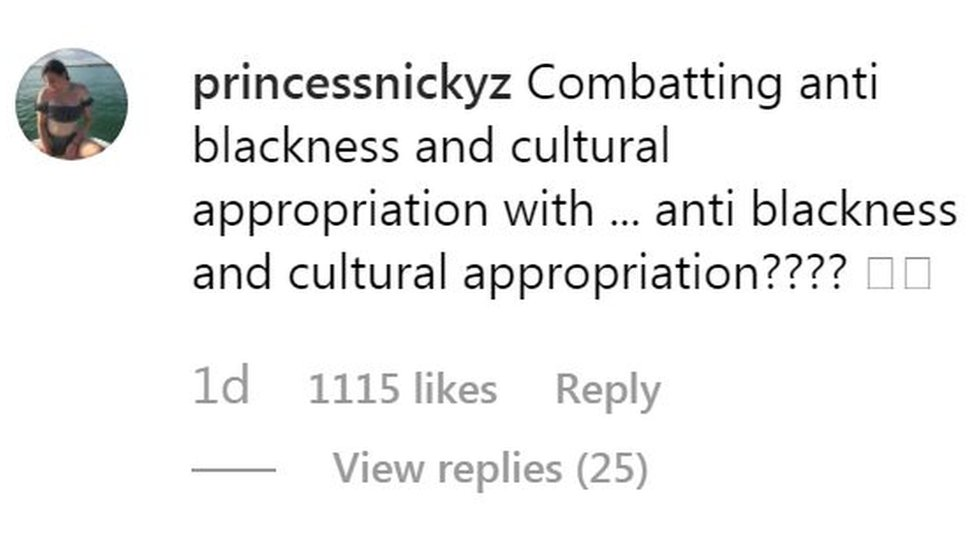
This Instagram user wondered whether Dragun was actually combating the problem with her statement
The hair is not the only thing that Dragun came under fire for online, as in an Instagram story she mentioned her heritage while defending her choice of hair.
"This is a protective hairstyle used to protect the hair," she said. "I would never want to offend anybody.
"Being part Native American, we also have braids and stuff like that."
This video sparked a lot of criticism online, with people refuting the conflation of Native American and black ancestries.
"Claiming Native ancestry still doesn't give you a pass to appropriate Black hairstyles," wrote one person, external, while another said they were "tired" of people using affiliation as an excuse.
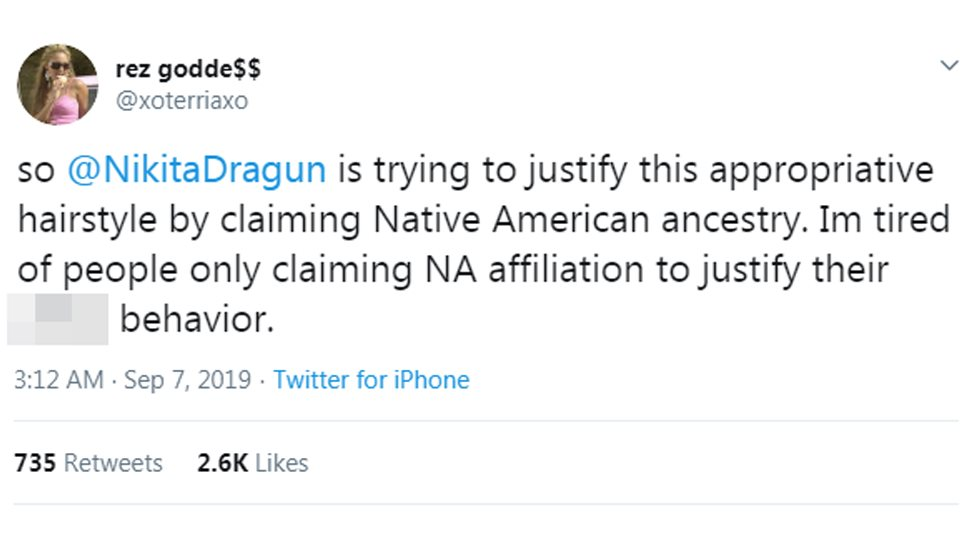
A response from Twitter, with a slightly sweary word blurred out by the BBC
Despite the criticism, there remain many who do not see this as an issue.
While in Dragun's case the negative feedback outweighs the positive, there remain comments from people who state they are not bothered by the hairstyle, as well as those who go so far as to say that "cultural appropriation does not exist".
"I'm Mexican and I don't get offended when people celebrate cinco de mayo and drink tequila," said Instagram user Karina Gomez-Trejo in response to the criticism. "If people think braids are beautiful and want to emulate them, then let them."
Meanwhile Twitter user Marcel Montique said, external the hair was a "stylistic choice", and one person simply commented, external: "It's just hair. Why is everyone so hurt by literally everything?"
Previously the BBC spoke to Yesha Callahan, an editor at The Root, a website aimed at African-American readers, who explained why some people are uncomfortable with people wearing hairstyles of other ethnicities.
"Hair is a huge part of black culture," she said. "People choose braids, dreadlocks, choose to straighten or weave - and a lot of people bring up these choices.
"Are black people appropriating white culture by straightening their hair? Well, there's a difference between assimilation and appropriation."
- Published1 May 2018
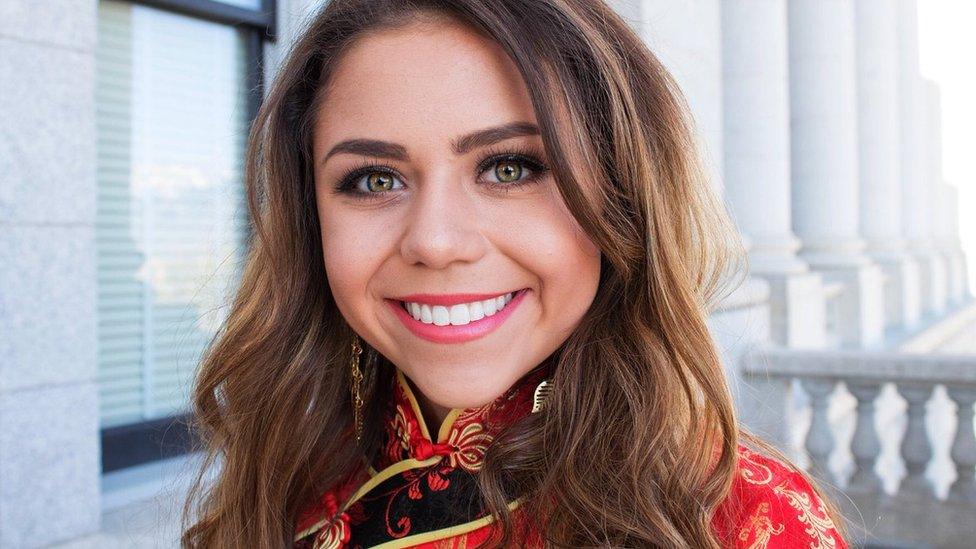
- Published2 April 2016
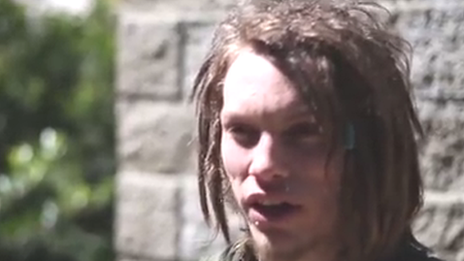
- Published22 June 2018
